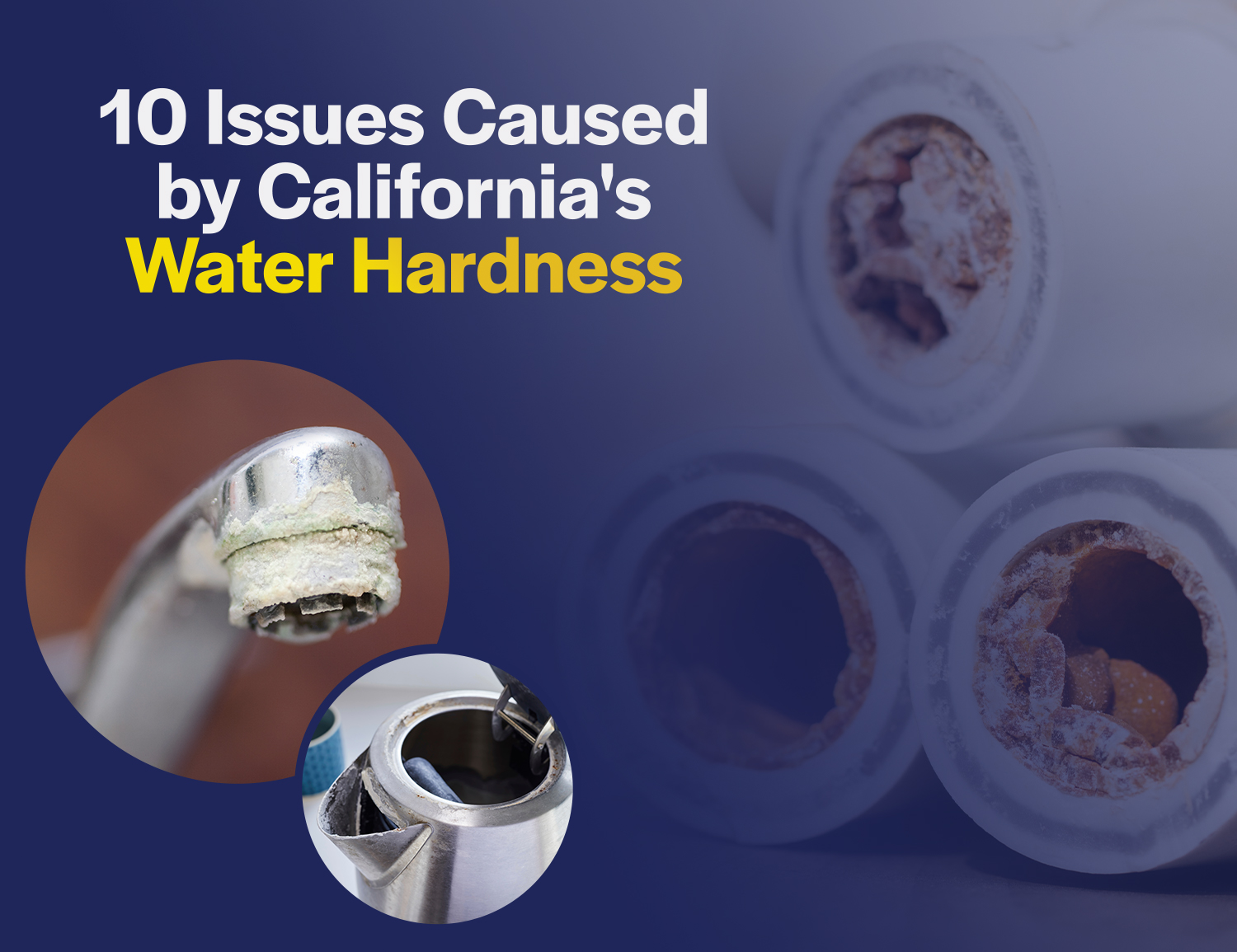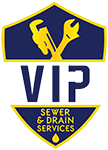
Water hardness is a prevalent issue across various regions worldwide, and California is no exception. With its diverse geography and climatic conditions, California experiences unique challenges associated with water hardness. From adverse effects on household appliances to health concerns, the impact of hard water extends beyond mere inconvenience. But what exactly is hard water and what issues does it create? Let’s dive in!
What is Hard Water
By definition, hard water is water that contains a high concentration of calcium and magnesium or other dissolved metals and can affect both city and well water. Calcium and magnesium are natural minerals found in rocks and soil. As water cycles and passes through these rocks and soil it picks up some of the mineral content. While hard water is classified as safe there are serious challenges it poses.
1. Damage to Appliances
One of the most noticeable effects of hard water is its detrimental impact on household appliances. Over time, the accumulation of mineral deposits, primarily calcium and magnesium, can damage water-using appliances such as dishwashers, washing machines, and water heaters. These deposits hinder the efficiency of appliances, leading to increased energy consumption, costly repairs, and shortening of your appliance’s overall lifespan.
2. Plumbing Issues
Hard water can also wreak havoc on plumbing systems, causing corrosion and blockages in pipes and fixtures. The buildup of mineral deposits restricts water flow, resulting in reduced water pressure and potential leaks. In extreme cases, clogged pipes may require premature replacements, adding to the financial burden for homeowners.
3. Skin Irritation
The high mineral content in hard water can strip the skin of its natural oils, leading to dryness, itchiness, and irritation. Individuals with sensitive skin may experience exacerbated symptoms, including eczema and dermatitis. The residue left behind after showering can clog pores, flare up acne and other skin conditions.
4. Hair Damage
Similar to skin, hard water can also take a toll on hair health. The mineral deposits in hard water make it difficult to rinse out shampoo and conditioner thoroughly, leaving behind a filmy residue. This residue can weigh down the hair, making it appear dull and lifeless. Additionally, hard water may strip the hair of its natural moisture, leading to frizz, breakage, split ends, and dandruff.
5. Laundry Concerns
The effects of hard water extend to the laundry room, where it can interfere with the effectiveness of detergents and fabric softeners. Mineral deposits in the water can prevent detergents from fully dissolving, resulting in soap scum buildup on clothes. As a result, laundry may appear dingy, dull, and feel stiff to the touch, requiring additional rinses to remove residue.
6. Stained Fixtures
One of the most visible signs of hard water is the staining of fixtures and surfaces. Calcium and magnesium deposits can leave behind unsightly residue on sinks, faucets, showerheads, and countertops that are quite challenging to remove.
7. Limescale Buildup
Limescale, a hardened deposit of calcium carbonate, is a common occurrence in areas with hard water. (Like that annoying ring that keeps forming in the toilet bowl.) In addition to causing stains, limescale buildup can also impair the functionality of appliances and plumbing fixtures. From coffee makers to shower enclosures, limescale deposits can be difficult to remove and may call for the use of harsh chemical cleaners.
8. Increased Energy Costs
The presence of hard water can lead to higher energy consumption and increased utility bills. Appliances such as water heaters and dishwashers must work harder to overcome the effects of mineral buildup, resulting in greater energy expenditure, and over time, the cumulative impact on energy costs can be substantial.
9. Reduced Soap Lather
Hard water has a diminished ability to lather with soap and detergent, making it less effective for cleaning purposes. This phenomenon, known as “soap scum,” occurs when the minerals in hard water react with soap, forming a sticky residue. As a result, more soap is required to achieve the same level of cleanliness, leading to wastage and increased household expenses.
10. Environmental Impact
Beyond its effects on households, water hardness also has environmental implications. The excessive use of detergents and cleaning agents to combat the effects of hard water can contribute to water pollution and harm aquatic ecosystems. Moreover, the disposal of chemical cleaners containing phosphates and other harmful substances can further degrade water quality and threaten wildlife.
Solutions to Hard Water
While there’s no foolproof way to prevent hard water, there are a few counteractive steps you can take to minimize the effects of hard water. Having your water professionally tested, will you give an idea of how aggressive you should be.
Install a water softener. Water softeners use ion-exchange technology to remove minerals from your water supply and replace them with sodium ions. This helps prevent the buildup of scale in pipes, appliances, and fixtures.
Reverse Osmosis Systems. RO systems can effectively remove minerals and other contaminants from water by forcing them through a semi-permeable membrane. This process helps reduce hardness as well as other impurities, producing clean and softened water.
Chemical Water Treatments. Various chemical additives are available to treat hard water, such as chelating agents that bind to minerals and prevent them from precipitating out of solution. These treatments can be applied directly to the water supply to mitigate the effects of hardness.
California’s water hardness presents an abundance of challenges that impact residents on multiple fronts. From appliance damage to skin irritation, the consequences of hard water extend far beyond mere inconvenience. By taking counteractive steps you can minimize the effects of hard water which will benefit your household and your property.


